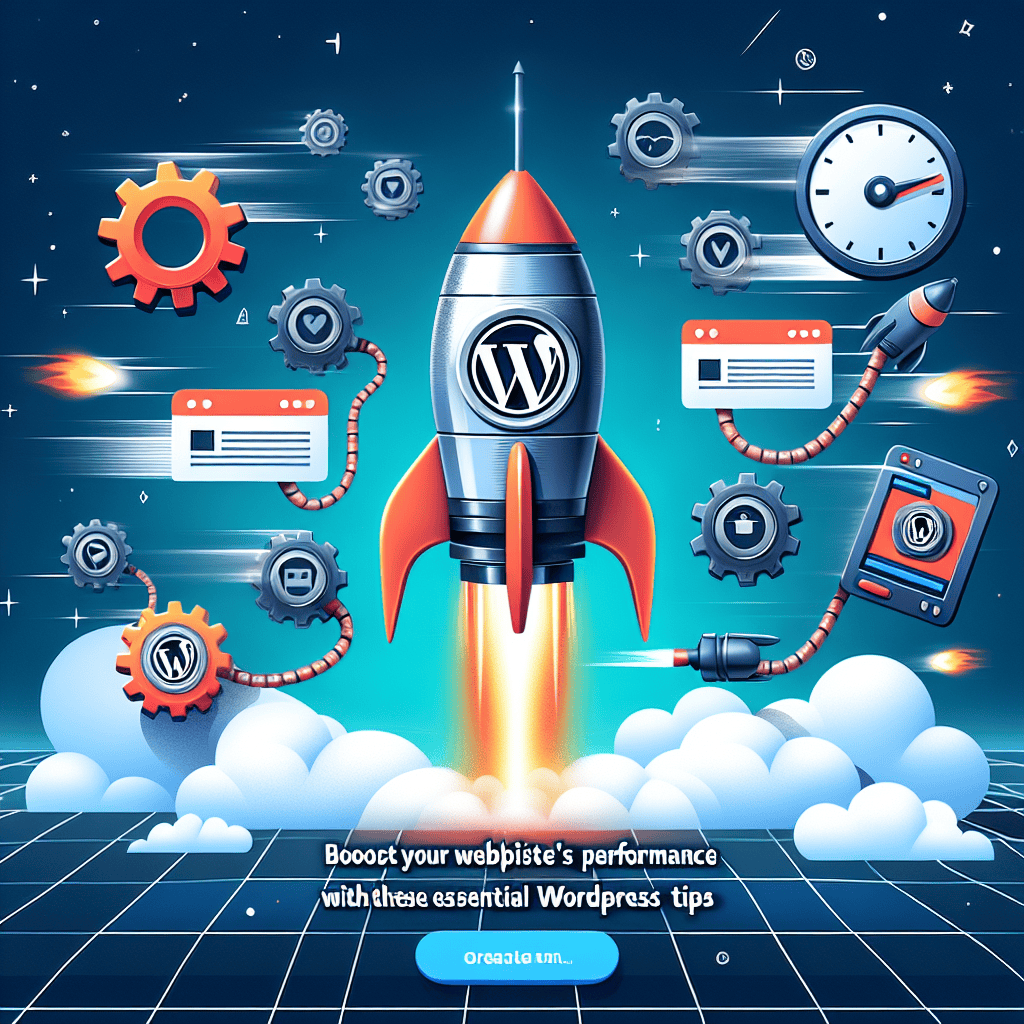Introduction
WordPress is one of the most popular content management systems in the world. With its ease of use and flexibility, it has become a go-to choice for website owners looking to create a dynamic online presence. However, to truly make the most of your WordPress website, it is important to optimize its performance. In this article, we will discuss some essential tips to help you boost your website’s performance and improve user experience.
Optimize your images
One of the most common reasons for slow loading times on websites is large image files. To ensure your website loads quickly, make sure to optimize your images before uploading them. This can be done by resizing them to the appropriate dimensions and compressing them to reduce file size without compromising quality. Additionally, consider using a plugin like WP Smush to automatically optimize images on your website.
Choose a lightweight theme
The theme you choose for your WordPress website can have a significant impact on its performance. Avoid heavy, bloated themes with excessive features and functionality that you don’t need. Instead, opt for a lightweight theme that is optimized for speed and performance. Look for themes that are well-coded, responsive, and SEO-friendly to ensure your website runs smoothly.
Enable caching
Caching is a technique that temporarily stores data to reduce load times on websites. By enabling caching on your WordPress website, you can significantly improve performance and speed up page load times for your visitors. Consider using a caching plugin like W3 Total Cache or WP Super Cache to enable caching on your website and optimize performance.
Minimize HTTP requests
Every time a web page is loaded, it makes multiple HTTP requests for various assets like images, CSS files, and JavaScript. Minimizing the number of HTTP requests can help reduce load times and improve website performance. Combine and minify CSS and JavaScript files, reduce the number of images on a page, and utilize browser caching to minimize HTTP requests and enhance user experience.
Optimize your database
The WordPress database stores all of the content and settings for your website, and over time, it can become bloated and slow down website performance. Regularly optimize your database by removing unnecessary data, spam comments, and post revisions to improve speed and efficiency. Consider using a plugin like WP-Optimize to clean up your database and keep your website running smoothly.
Utilize lazy loading
Lazy loading is a technique that defers the loading of images and videos on a web page until the user scrolls down to view them. By implementing lazy loading on your WordPress website, you can improve page load times and reduce bandwidth usage. Consider using a plugin like Lazy Load by WP Rocket to enable lazy loading and enhance performance for your website visitors.
Conclusion
By following these essential WordPress tips, you can boost your website’s performance, improve user experience, and ensure that your website runs smoothly and efficiently. From optimizing images and choosing a lightweight theme to enabling caching and minimizing HTTP requests, there are many strategies you can implement to enhance the performance of your WordPress website. Remember to regularly monitor and maintain your website to ensure optimal performance and make necessary adjustments as needed. With these tips in mind, you can take your WordPress website to the next level and provide a seamless experience for your visitors.
Searching for Professional WordPress Website Design? Check out our WordPress Web Design service.
Discover our WordPress Web Hosting Service
Schedule a WordPress Web Hosting Strategy Call




0 Comments